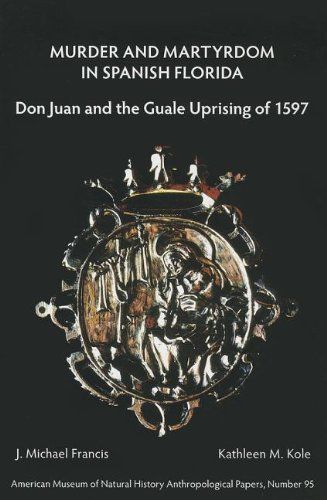
Murder and Martyrdom in Spanish Florida Don Juan and the Guale Uprising of 1597
In the late fall of 1597, Guale Indians murdered five Franciscan friars stationed in their territory and razed their missions to the ground. The 1597 Guale Uprising, or Juanillo's Revolt as it is often called, brought the missionization of Guale to an abrupt end and threatened Florida's new governor with the most significant crisis of his term. To date, interpretations of the uprising emphasize the primacy of a young Indian from Tolomato named Juanillo, the heir to Guale's paramount chieftaincy. According to most versions of the uprising story, Tolomato's resident friar publicly reprimanded Juanillo for practicing polygamy. In his anger, Juanillo gathered his forces and launched a series of violent assaults on all five of Guale territory's Franciscan missions, leaving all but one of the province's friars dead. Through a series of newly translated primary sources, many of which have never appeared in print, this volume presents the most comprehensive examination of the 1597 uprising and its aftermath. It seeks to move beyond the two central questions that have dominated the historiography of the uprising, namely who killed the five friars and why, neither of which can be answered with any certainty. Instead, this work aims to use the episode as the background for a detailed examination of Spanish Florida at the turn of the 17th century. Viewed collectively, these sources not only challenge current representations of the uprising, they also shed light on the complex nature of Spanish-Indian relations in early colonial Florida.